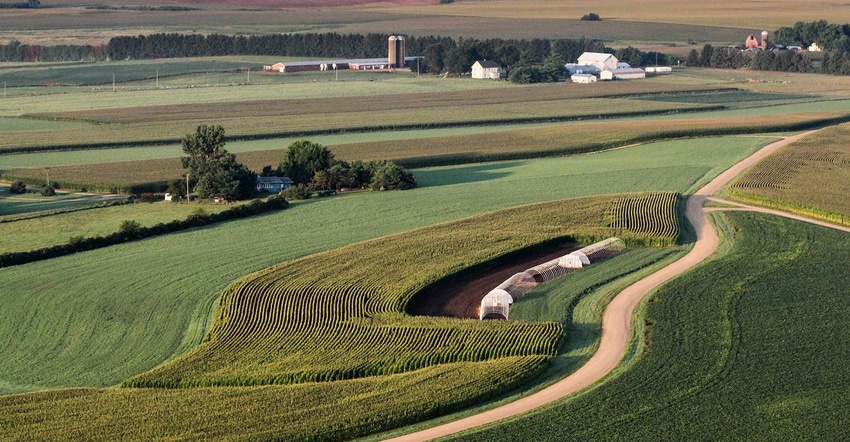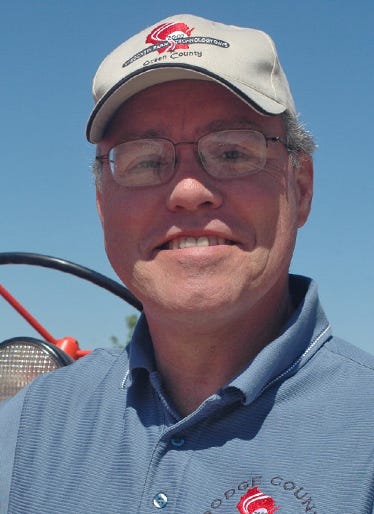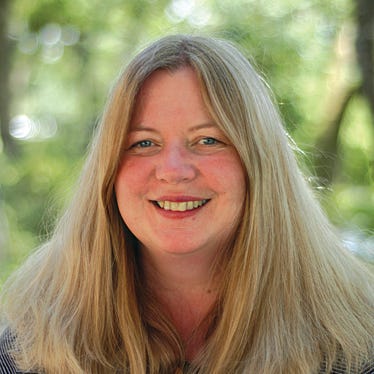
Rick Klemme’s job as dean and director of Cooperative Extension at the University of Wisconsin Extension ended in November 2016, but his career with Extension continued. In February, Klemme became the executive director of the Extension Committee on Organization and Policy in Washington, D.C.
ECOP is the board of directors for all Cooperative Extension Services in the United States. It is funded by the Extension Services across the country. According to Klemme, it is essentially a membership organization that represents all 50 states, Puerto Rico, the U.S. Virgin Islands and Guam, and functions like a board of directors with 15 directors.
“The country is divided into five regions, and each region has three members,” he says.
Klemme says he is enjoying his new job. “They had asked me to apply for this job, but it was a full-time position in Washington, D.C.,” he explains. “I didn’t want to leave Madison. When they had a failed search, I negotiated a 60%-time position, which works out to about 25 hours a week. I’ve been able to manage my time to keep within that time frame.”
Limited travel
Klemme, 63, says he travels to Washington, D.C., once a month for three or four days.
“I do have office space in Washington,” he says. “I’m in meetings, I meet with leaders of other agricultural organizations who have offices in D.C., and I meet with organizations who want to partner with Extension. I also meet with ag staffers in Congress.”
Klemme says part of his job is raising awareness of Extension and making sure everyone in Washington understands the value of Extension and specifically what it is about. Extension includes agriculture, 4-H, family living and community development. It is funded at the federal level by the USDA with matching funds by state and local (county) governments.
“Sandy Ruble is ECOP’s program associate and works full time in the national office,” he says. “She works with me and very capably organizes and keeps track of all the things we need to do.”
Klemme admits it’s a lot of work to make sure people in key positions understand Extension and maintain funding for Extension at the national level.
“We have to keep communicating the value of Extension,” he says. “It’s like what we do at the county and state level. It’s important to keep everyone aware of what Extension does.”

FEDERAL JOB: In February, Rick Klemme became the executive director of the Extension Committee on Organization and Policy in Washington, D.C.
Klemme says he isn’t sure how long he will continue working in this position, which he does primarily from Madison. “I telecommute from home,” he says. “I have two to three video conferences per week and several phone calls and, of course, email.
“My initial job lasted through the end of October,” he says. “There has been another failed search, so my position has been extended through April. I am for sure doing this job through April and perhaps longer. Ultimately, it would be better if they had a full-time employee in this position based in Washington, D.C.”
Work-life balance
Klemme says he likes the flexibility his new work schedule offers. “I have a nice work-life balance,” he says. “My wife, Cindy, and I have two grandkids who are 6 and 1½ years old. They live in Madison, so we get to see them a fair amount of time. If I want to work an hour or two and then run an errand or be home when the kids come home from school at my daughter’s house, I can do that.”
Klemme has worked for 37 years in Extension. He grew up on a farm in east-central Illinois. After earning a bachelor’s degree from Illinois State University and getting a doctorate in agricultural economics at Purdue University, Klemme began his career in Extension in 1980 when he took a job as an agricultural economist with a 60% Extension appointment in farm management at University of Wisconsin-Madison. In 2006, he was named interim dean and director of UW Extension before being appointed dean and director of UW Extension in 2007. Prior to that, Klemme was the associate dean of Extension and Outreach in the College of Agricultural and Life Sciences.
Klemme says his state Extension experience made for a smooth transition to his current job.
“I knew everybody on the board going into this job,” he says. “Of course, there have been a few new people come on board, which I have easily been able to accommodate.”
Klemme says he is pleased that ECOP has maintained funding for Extension this year in the federal budget. “We’ll see what happens next year,” he says. “Those federal funds are helping people in every state. Any public funding of any program like Extension is a challenge. We have to constantly communicate what Extension’s return on investment is.”
About the Author(s)
You May Also Like






